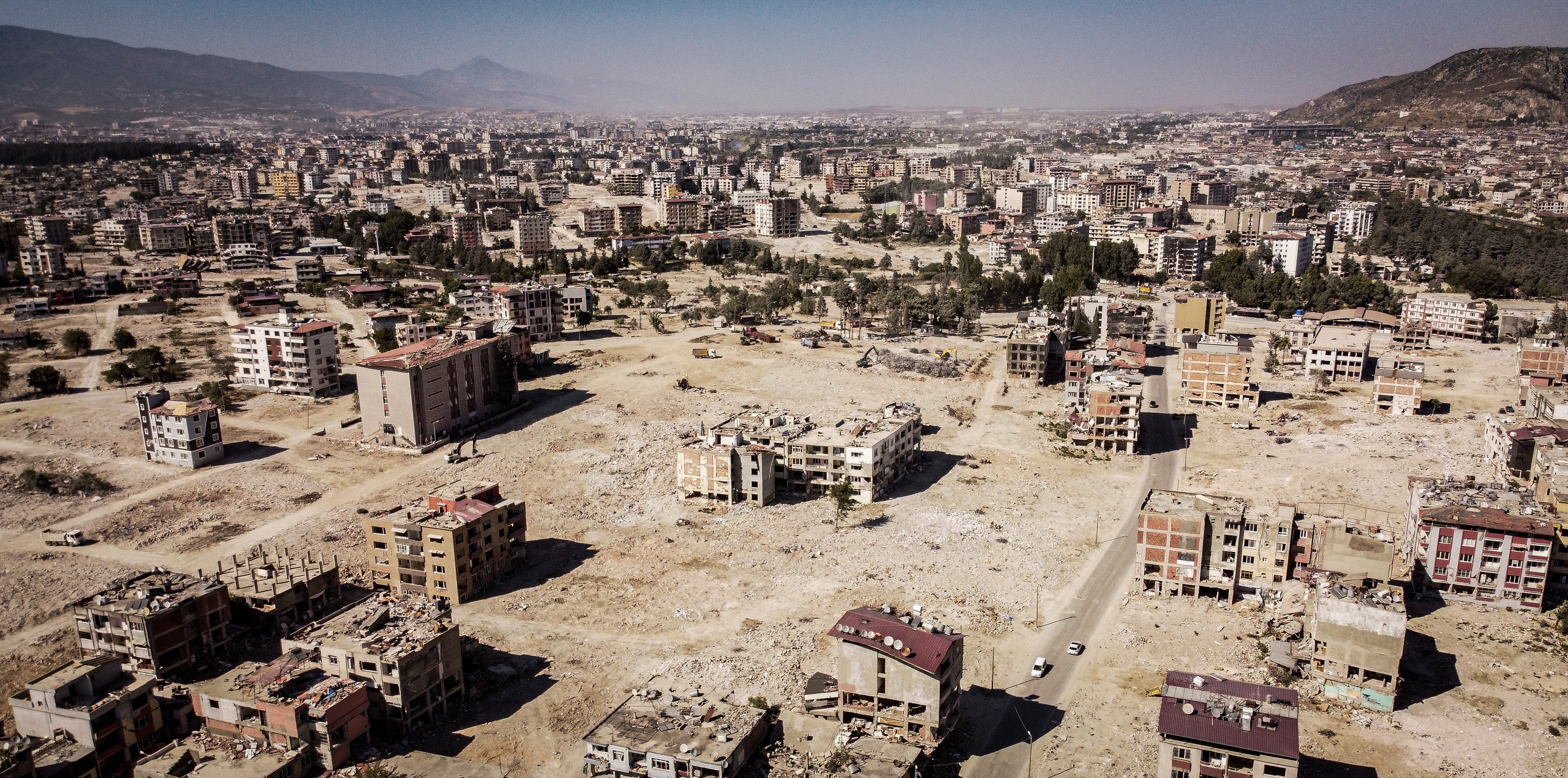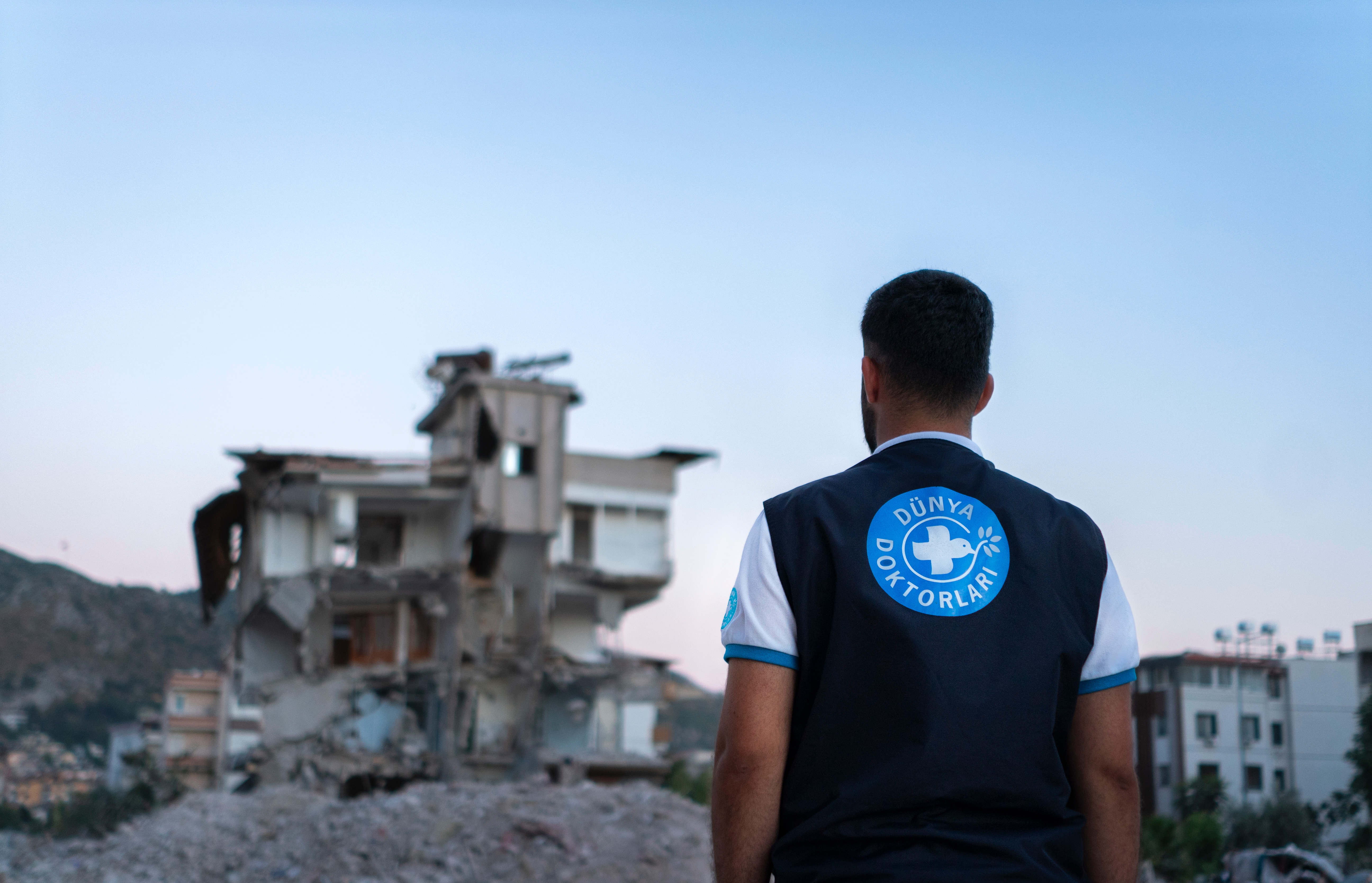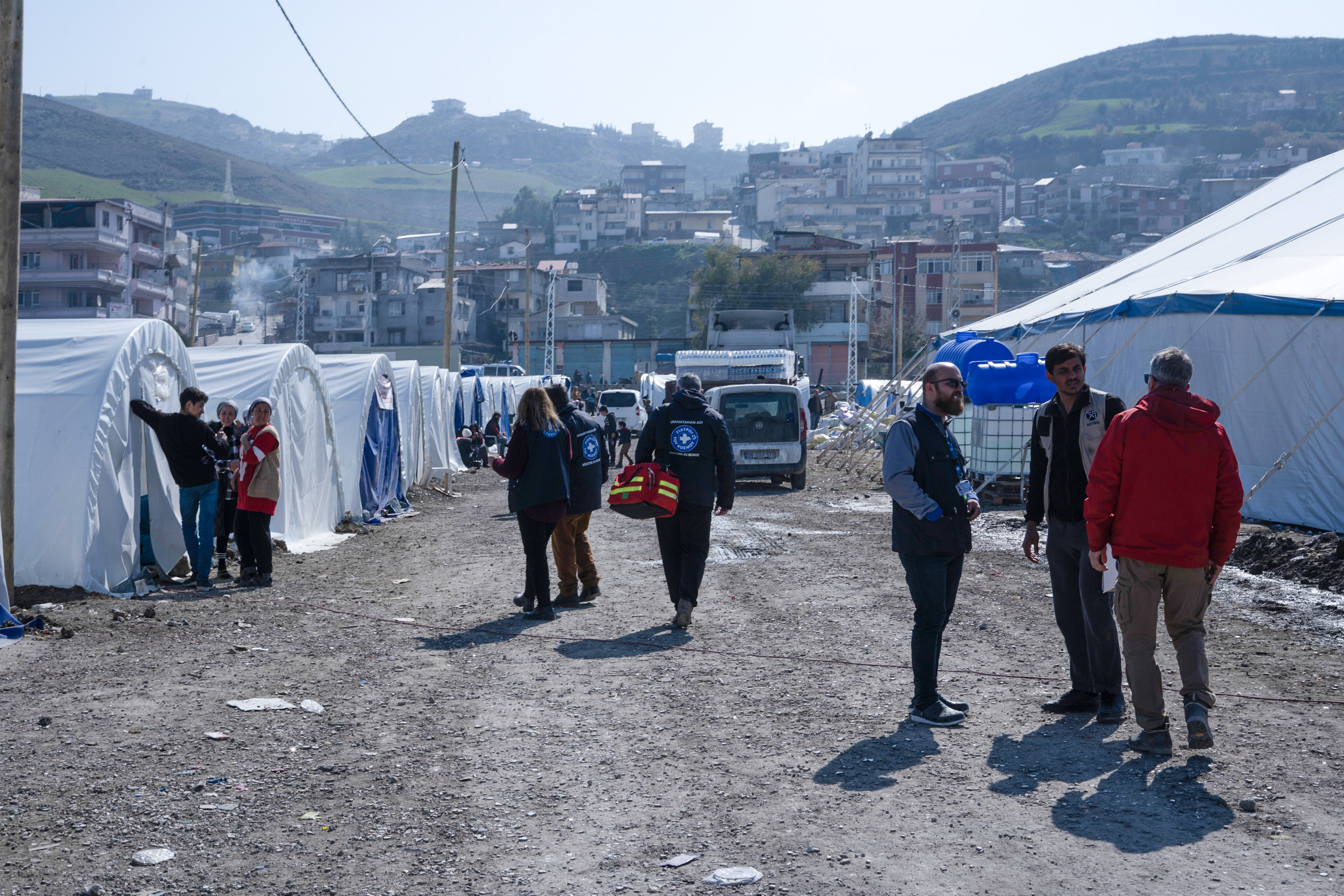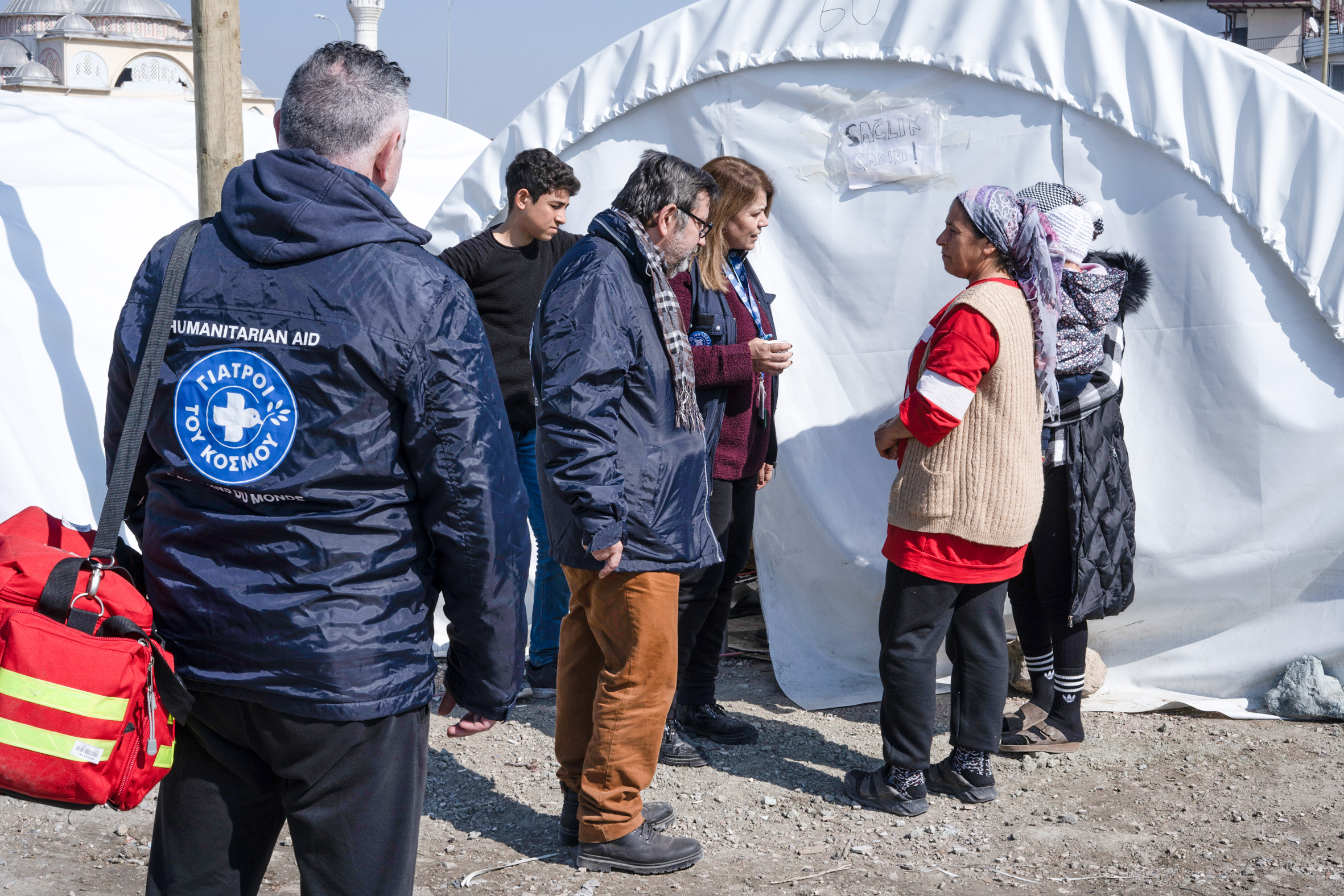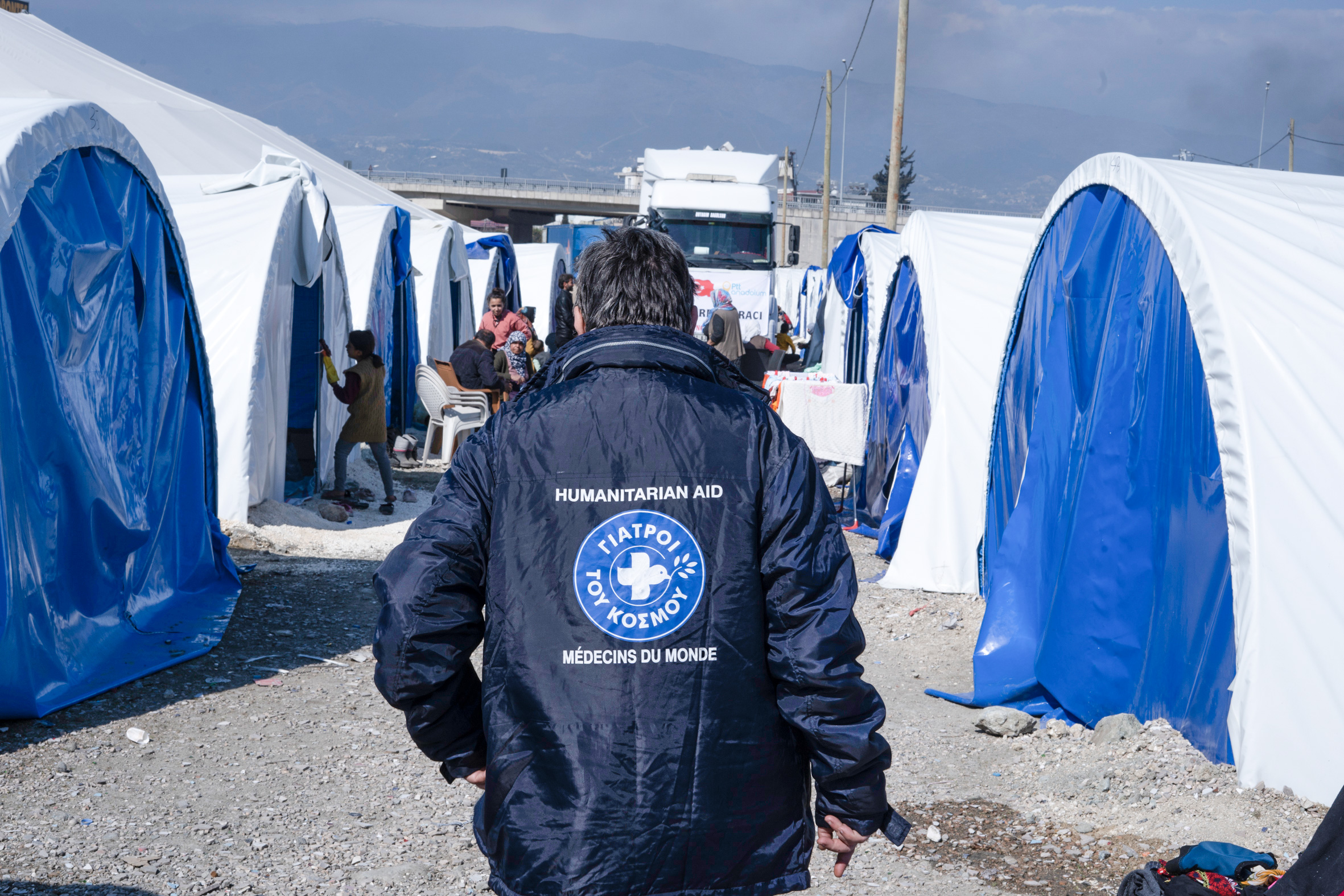Türkiye and Syria
Six months after the terrible earthquake that hit Southeast Türkiye and Northwest Syria on 2023, February 6th and affected 15 million people, the population is exposed to a new health risk due to the debris removal causing new asbestos and dust-related diseases and potential long-term increase in cancer incidence.
Médecins du Monde Greece has been in the affected areas from the very first moment, supporting the intervention staff, providing primary health care advice and medicines as well as psychosocial support. Médecins du Monde is already observing increase of conjunctivitis, allergic asthma, and skin reactions.
Moreover, hot weather and lack of clean water foster the reproduction of microorganisms and insects causing an increase in cases of scabies and gastroenteritis. It’s also emphasized by crowded living space (tents and containers) where most people have been relocated since the earthquake, and the risk of epidemics such as typhoid, cholera and tuberculosis.
THE DANGERS
“[…] With the warming weather, buildings that were severely damaged and at risk of collapse started to be gradually demolished. As a result of this demolition process, the asbestos threat emerged. Asbestos is a hazardous material that is harmful to human health. A study conducted by the Chamber of Environmental Engineers found asbestos in approximately one out of every two buildings. This poses serious dangers to people, especially in this area. […] The increase in upper respiratory disorders still persist and our mobile teams continue to provide primary healthcare services both in rural and central areas.” Cuma Ali Özbek, Médecins du Monde emergency field manager based in Hatay, Antakya said.
Vulnerable groups
Women and children are particularly still vulnerable and suffer disproportionately in the aftermath of disasters, taking care of their extended families – finding food, trying to cook, washing or cleaning where water is available – whereas 356,000 pregnant women have been identified across the earthquake-affected areas and 39,000 of them are expected to deliver babies in the coming weeks. The lack of toilets and cleaning facilities for instance are a major source of distress..
“Based on the assessments of our mobile teams as part of our field activities in the aftermath of the earthquake, we observed that particularly women and children faced difficulties in accessing various services and had challenges in creating private spaces for themselves. In response, we created a safe space. […] Those entering the safe space can benefit from a wide range of services, including psychosocial support, protection services, sexual and reproductive health services, medical examinations, access to a shower and laundry facilities, and a hairdresser. This enables them to create a private space for themselves and to feel comfortable and at ease while overcoming the obstacles in accessing these services.” Cuma Ali Özbek added.
MdM RESPONSE
In the first days after the earthquake, Médecins du Monde deployed medical teams to support the health system and overcome the lack of primary health care, as well as specific needs. Since February 2023, Médecins du Monde has supported 17,000 people in the Hatay and Antakya region (Türkiye), through more than 12,000 medical consultations and individual and collective psychosocial support sessions to 5,000 people, and provided primary health care services to more than 83,000 people in Afrin and Idlib (Syria). Médecins du Monde aims to scale up its services in the region, including increasing the number of safe spaces, in collaboration with the public and local authorities as well as other NGOs operating in the region.
